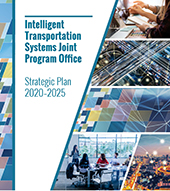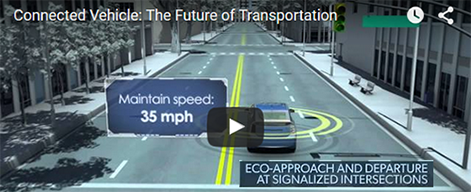Research Archive
Research Progress & Insights

Integrated Corridor Management Progress & Insights
Phase 1: Foundational Research
Research Accomplishments
- Research into the current state of corridor management in the United States as well as leading examples of ICM-like practices around the world and initial feasibility research.
- Development initial technical guidance, including a Generic Concept of Operations (ConOps) for ICM to serve as a resource for sites seeking to develop their own concepts.
- Formation of a multimodal stakeholder group consisting of representatives from the public and private sectors.
- Research results documented in a set of technical memoranda, all of which are available in the ICM Knowledgebase.
Critical Research Insights
- The Generic ICM ConOps, developed with input and feedback from the multimodal stakeholder group, resulted in a shared framework through which the ICM Initiative could identify, test, revise and deploy appropriate technologies and techniques within the context of a ConOps.
Next Steps
- As a result of the Phase 1 research, the U.S. DOT decided to move forward with the ICM Initiative.
Phase 2: Corridor Tools, Strategies and Integration
Research Accomplishments
- Development of analytical tools and methods to enable implementation and evaluation of ICM strategies.
- Worked with eight pioneer sites to develop and test various ICM Components such as standards, interfaces, and management schemes.
- Evaluated the expected benefits to be derived from implementing ICM systems.
- This phase was designed to help decision-makers identify gaps, evaluate ICM strategies, and invest in the best combination of strategies to minimize congestion. Findings also helped to estimate the benefits resulting from ICM across different transportation modes and traffic control systems.
Critical Research Insights
Next Steps
- The overall effort of Phase 2 resulted in validated and tested methodologies to support ICM analysis and implementation
Phase 3: Corridor Site Development, Analysis and Demonstration
Research Accomplishments
- In Phase 3, U.S. DOT partnered with eight pioneer sites across three stages:
- Stage 1: Concept Development - All eight sites developed site-specific ConOps and requirements documents. Each site provided sample data for evaluation. The Pioneer Sites began working on Stage 1 in October 2006 and completed their concept development in March 2007.
- Stage 2: Modeling - In 2009-2010, three sites (Dallas, TX; Minneapolis, MN; and San Diego, CA) analyzed and modeled their proposed ICM systems. These sites had the data, modeling and simulation tools, and well-described ICM systems needed to support analysis.
- Stage 3: Demonstration and Evaluation (FY10-FY13) - Two sites (Dallas, TX and San Diego, CA) are currently demonstrating their ICM systems. Independent evaluators are assessing the effects of ICM on demonstration site corridor performance in the areas of mobility, travel time reliability, emissions, safety, and benefit-cost.
Critical Research Insights
- The application of Analysis, Modeling and Simulation (AMS) to the ICM strategies of the Pioneer Sites yielded insights that can help other transportation system managers and operators across the country select and apply optimum ICM strategies in their corridors.
- The demonstrations are actively exploring the potential benefits of ICM through improvement in corridor performance using realistic and useful metrics. They are also providing the documentation necessary to transfer ICM concepts to future adopters.
Next Steps
- Data from the demonstrations is being used to refine the AMS models and methodology.
- The USDOT is conducting independent “before-after” analyses to evaluate the benefits of ICM on transportation operator situational awareness, response and control, traveler information, and overall corridor performance.
Phase 4: ICM Outreach and Knowledge and Technology Transfer
Research Accomplishments
- The U.S. DOT is freely disseminating the resources and lessons learned from the ICM Initiative through a suite of knowledge and technology transfer (KTT) resources intended to equip multimodal transportation leaders to improve corridor performance. KTT resources include the searchable, browseable ICM Knowledgebase; guidance documents; peer-to-peer training opportunities; conferences and meetings; outreach materials such as fact sheets and presentations; and documents developed by the ICM Pioneer Sites.
- The U.S. DOT has designed and piloted workshop a multiple sites. Workshops can be 2-day, hands-on events for sites seriously considering or already pursuing ICM, or abbreviated half-day events for sites that want to learn more.
Critical Research Insights
- The U.S. DOT is actively connecting leaders from peer locations implementing ICM today—including representatives from the demonstration sites and early adopter locations—in the development of the content and format for the KTT resources to ensure they are useful and practical to end users.
Next Steps
- The mission of Phase 4 KTT efforts is to equip practitioners in corridors around the country to implement ICM through a comprehensive set of practical resources.











